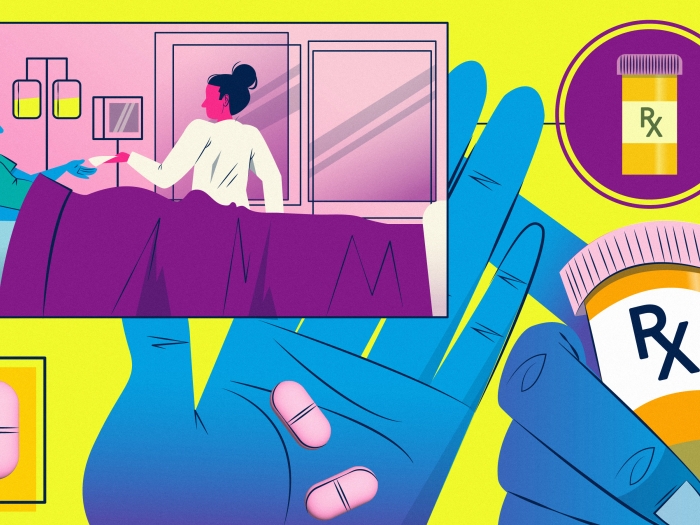8:00 AM

The University of Michigan has launched a new transdisciplinary institute that will bolster research collaborations and strengthen community engagement to address the national opioid overdose crisis, which leads to nearly 200 deaths per day across the United States.
The Office of the Vice President for Research and the Medical School’s Office of Research have jointly committed $3 million over the next three years to launch the Opioid Research Institute, an expansion of the Opioid Solutions network that was created in 2018 to build partnerships among U-M researchers.
“Opioid overdose deaths across Michigan have increased tenfold since 2000, and unfortunately this medical illness continues to ravage families and communities across both peninsulas,” said Rebecca Cunningham, M.D., U-M's vice president for research and a professor of emergency medicine, who helped create the Opioid Solutions network. “An epidemic of this magnitude requires evidence-based solutions so that, in partnership with communities, our researchers can help identify what programs and services are most effective in reducing opioid-related overdoses and deaths.”
The institute will serve as a central hub for opioid-related research, bringing together U-M experts and external partners to catalyze and expand high-impact research, programs and collaborations that revolve around opioid misuse treatment and prevention.
“We have seen this crisis grow at an alarming rate, and so as a community of researchers and clinicians, we have a unique responsibility to share evidence-based strategies beyond our campus walls so that we can identify and implement new ways to reduce mortality, all while addressing the critical needs of our patients,” said Marschall S. Runge, M.D., chief executive officer of Michigan Medicine, dean of the Medical School and executive vice president for medical affairs.
“This new institute will provide not only our faculty with the support they need to continue their essential work, but will also break down barriers to help find solutions that support communities in need and accelerate the translation of research to practice.”
Amy Bohnert, Ph.D., M.H.S., and Chad Brummett, M.D., who have studied opioids over the past two decades, will lead the institute as inaugural co-directors.
Bohnert is a professor of anesthesiology and associate professor of psychiatry in the Medical School, and associate professor of epidemiology in the School of Public Health. Brummett is the Bert N. LaDu Professor of Anesthesiology Research and professor of anesthesiology in the Medical School.
Bohnert and Brummett have published more than 300 opioid-related scientific papers, and collaborated with health care providers, hospitals, insurers, patients and communities to improve care across the state of Michigan. To help develop a strategic framework for the institute, they engaged faculty and staff across disciplines from each of the three U-M campuses.
Their team will appoint an internal executive advisory committee so members can provide guidance on strategic priorities and foster collaboration across disciplines. An external stakeholder committee also will be formed to ensure diversity of nonpartisan perspectives beyond academia, and its members may include leaders from sectors such as health care, industry, public health and government.
The institute will serve communities throughout the state, and nationwide through education, translational research and implementation of evidence-based programming and treatment. The institute also will use existing partnerships and collaborations to access data structures that will expand scientific capacity and allow for measurement of progress.
“This innovative institute will coalesce faculty from across U-M to facilitate collaborations on the most up to date, data-driven approaches to saving lives and preventing opioid misuse,” said Steven Kunkel, Ph.D., executive vice dean for research at the Medical School and chief scientific officer for Michigan Medicine.

Department of Communication at Michigan Medicine





